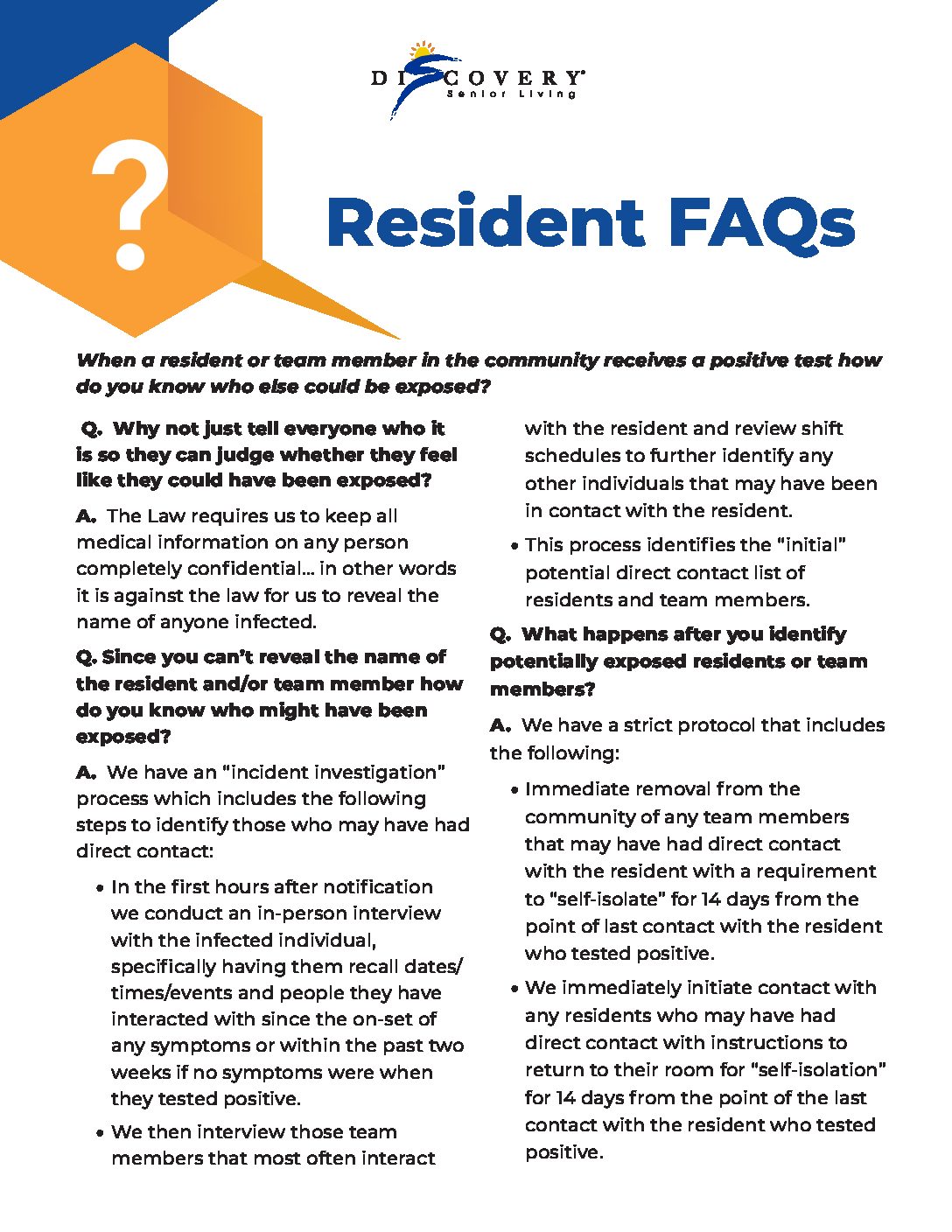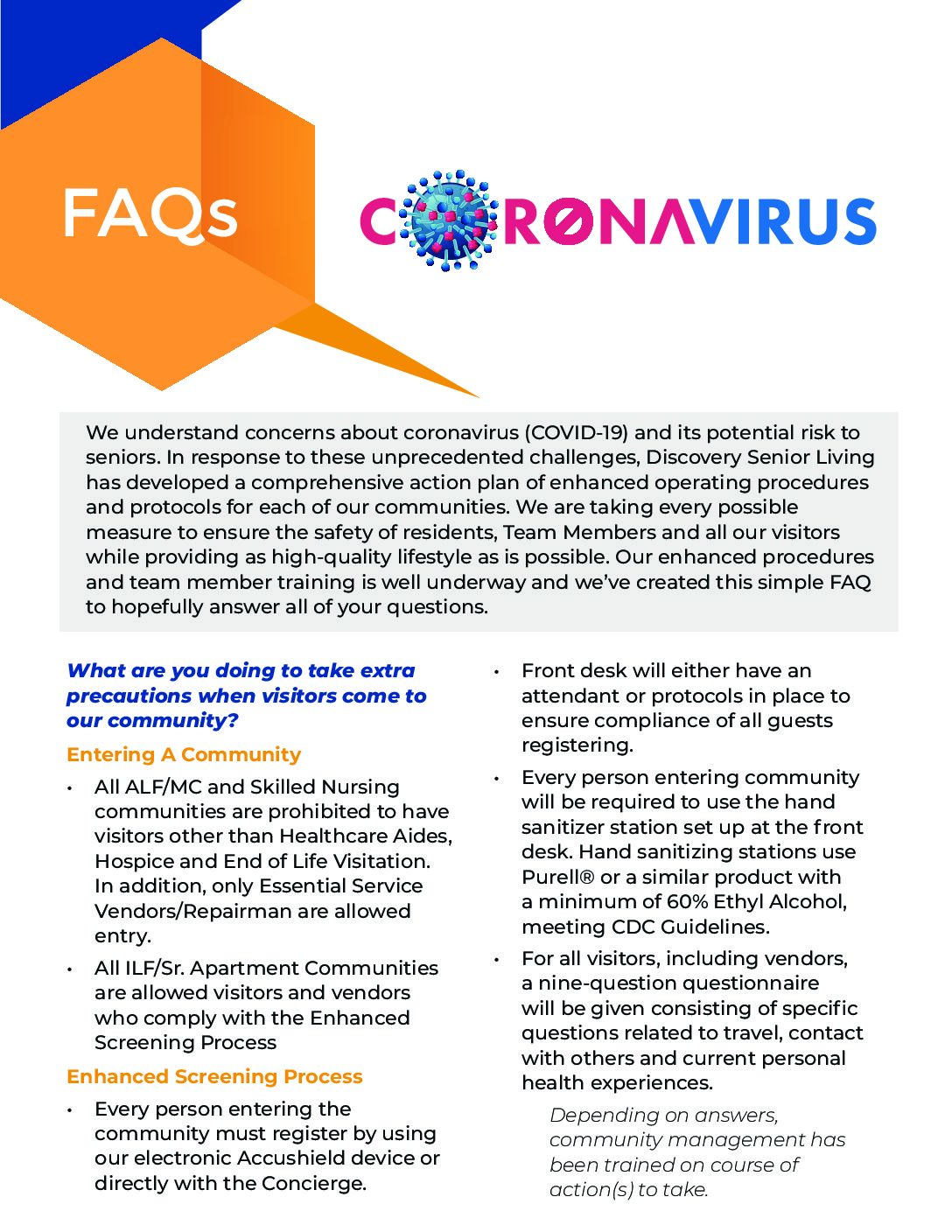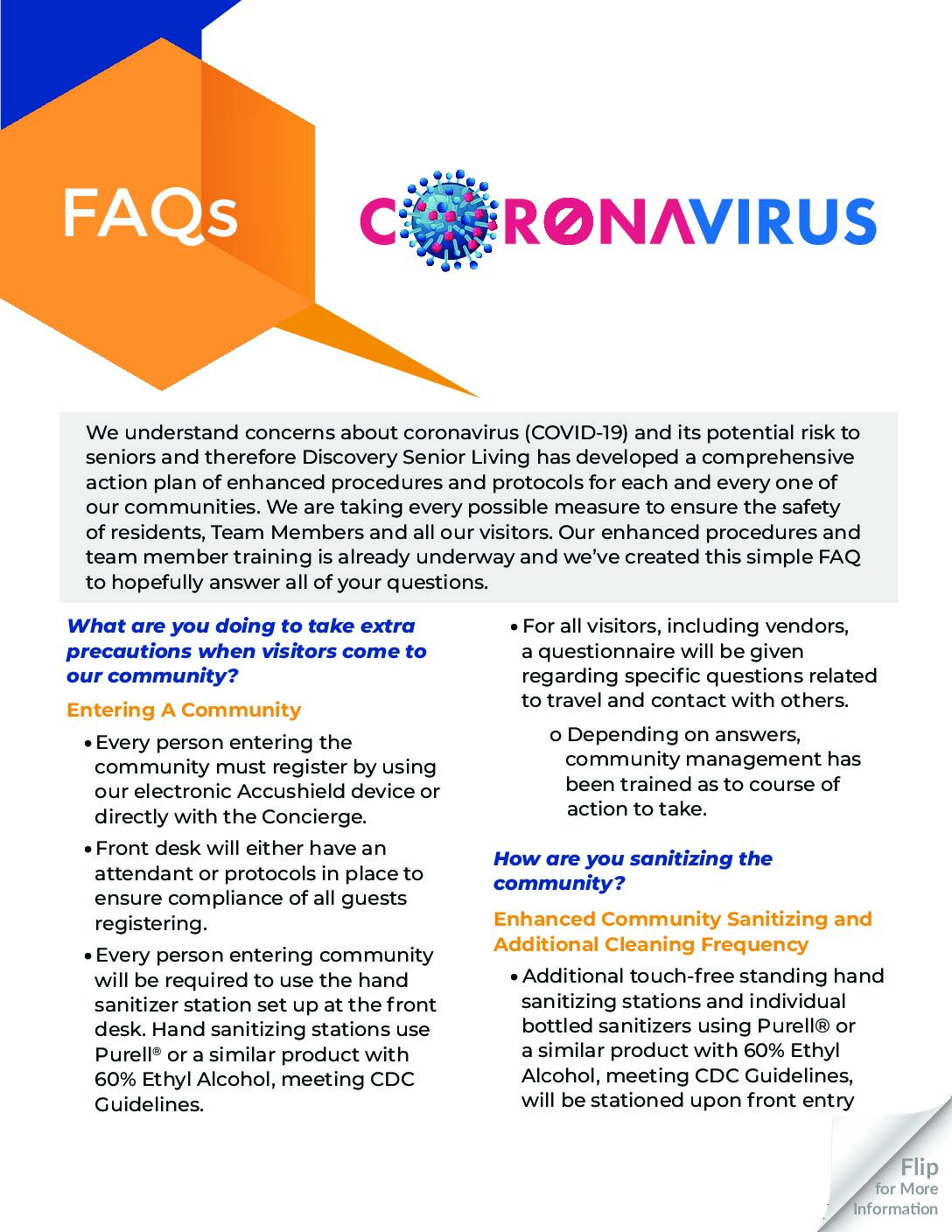Update – July 29, 2020
For us, a new month creates a new forum to take continued actions against the spread of COVID-19 to our communities and throughout their surrounding areas. So this week, with August approaching, we’re announcing the latest enhancement to our COVID-19 Early Identification and Containment Protocols:
Effective immediately, we have further expanded our voluntary COVID-19 testing capabilities, and are able to provide free testing to all current and new, incoming residents, as well as team members at Discovery Senior Living communities nationwide.
Back in April, we were one of the first in the nation to offer a testing program, which rolled out in Florida, Texas, and other areas with high incidence rates. By growing the program to become national in scale, this represents the strongest measure taken to date to protect resident seniors and our dedicated team members from COVID-19. But it’s not all we’re doing to keep everyone safe and healthy…
Stringent cleaning and sanitization schedules, social distancing guidelines, and restrictions regarding visitation and outside vendor access to the communities all remain in place nationwide. Plus, we’ve pioneered new, socially-distanced activities and events, and are using technology and digital tools to keep residents entertained and well-connected to their families using FaceTime, Skype, and other apps on personal devices or our communities’ dedicated iPads.
We’re also beginning to implement a careful, measured approach to reopening, where permitted by local, state, and federal guidelines.
The reopening process will take place in phases (Red, Yellow, and Green), which allow us, over time, to methodically restore access to amenities, dining, and other lifestyle programs. And in some communities, where permitted, we may also be able to begin allowing non-essential, outside visitation, so get ready for plenty of joyful reunions with your loved ones!
Keep in mind, however, that if any point a resident or team member tests positive for COVID-19, the community shall reevaluate the current phase and revert back to Phase 1 (Red) guidelines if appropriate.
For Independent Living residents, the transition from Phase 1 to Phase 2 is underway in select communities. Residents, there are already enjoying more freedom to dine together in small groups, use the available amenities (beauty salons, fitness centers, etc.) and take part in indoor and especially outdoor activities (games, walks, group stretching and exercise, etc.). We are also touring in-person at our communities, so if you’re thinking of making a move to senior living, we encourage you to visit us. You can be assured all measures are being taken at our communities to keep you safe.
As for our Assisted Living and Memory Care communities, which are bound by state and local mandates, the process will be a bit slower. However, in partnership with area leaders and health departments, we’ll take measured actions to ensure the continued safety and well-being of more vulnerable seniors. We are also conducting personalized virtual tours, so if you or your loved one is in need of added care services, please reach out to one of our communities for your special, customized virtual visit.
Our policy throughout the pandemic has been to be careful, calculating, and decisive, and that commitment remains as strong as ever. We can’t express enough how much we appreciate everyone’s patience and continued support, and especially the many public demonstrations (gifts, signs, emails, Facebook posts, etc.) of love and gratitude for our efforts.
It’s also been fun and fulfilling for everyone to witness and experience your many drive-through visits, complete with signs and kind words of love and encouragement for our residents. In uncertain times like these, it’s difficult to overstate the value of a controlled environment, one that’s filled with caring and committed people. We take extreme pride in providing that for our residents and their families, and despite the current limitations, will continue to use every available resource to deliver the best experience we can.






